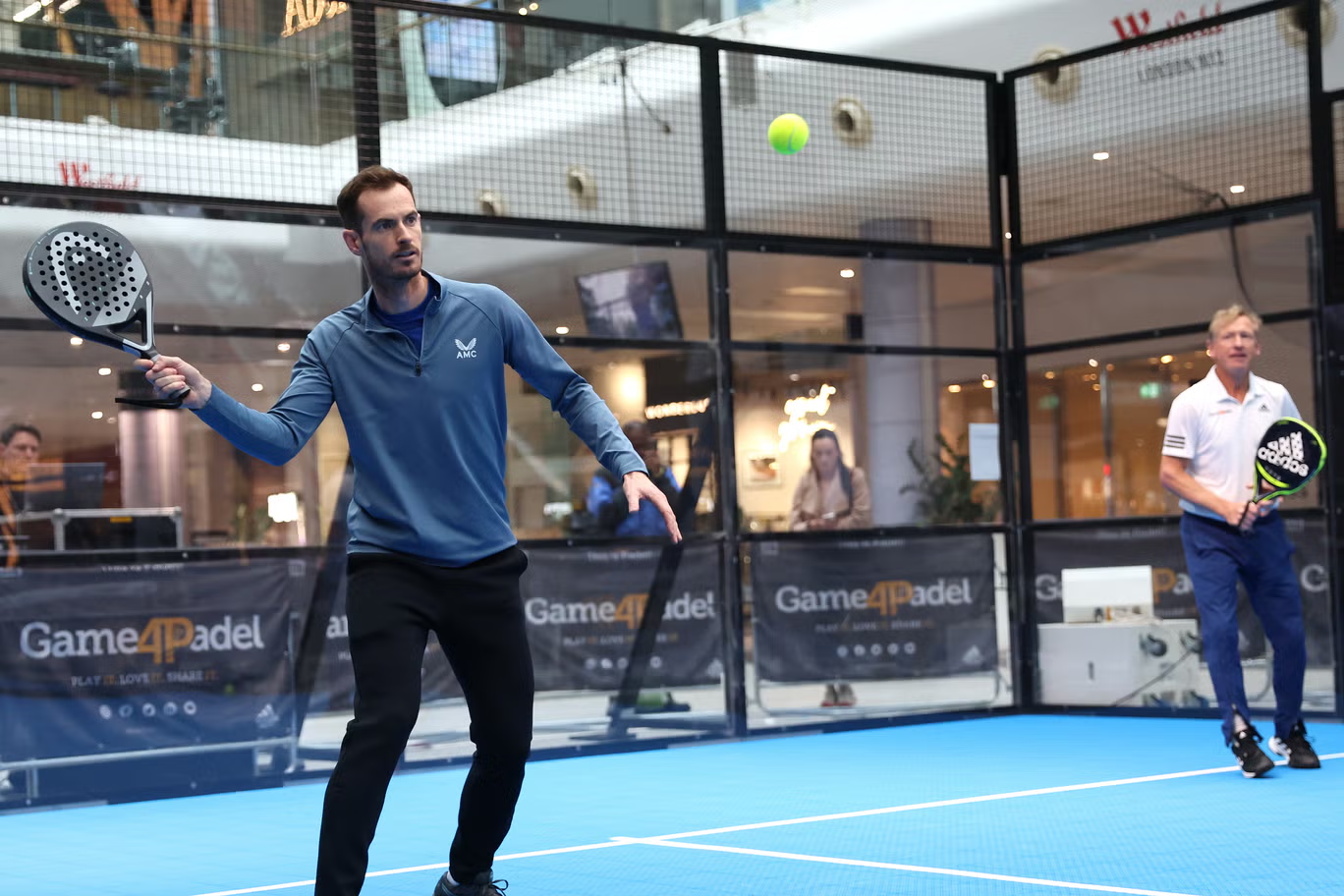
Padel is officially “the world’s fastest growing sport” (LTA), and anecdotally, it certainly seems to be taking the country by storm. Bookings often need to be made weeks in advance. “Padel socials” are beginning to emerge across London’s corporate scene. And the list of celebrities announcing interest if not outright investment in the sport seems to grow longer by the week.
This apparent boom is supported by the data – at least to a degree. The number of padel courts in the UK is approaching 1,000. Playtomic, by far the dominant padel booking platform with ~80-90% UK market share, lists 894 UK padel courts on its platform, up from ~350 in 2023 (Playtomic app, LTA). Participant numbers match this trend: an estimated 230,000 people play padel on an annual basis, up from 50,000 in 2023 (LTA).
Globally, however, the UK remains a laggard. Spain is the sport’s undisputed global hub, where padel has been ubiquitous for decades. It is also highly prevalent in Italy, Sweden, and further afield, in Argentina and much of the Middle East. Compare the UK’s number of courts to Spain’s 16,000 or Italy’s 9,050 (Padel FIP), and the difference becomes abundantly clear.
This raises several questions. First, what is driving the current padel moment the UK is experiencing? Secondly, to what extent can the UK ‘catch up’ to the world’s padel leaders? And finally, how can UK padel operators differentiate themselves to take advantage?
GQ magazine have reported that padel is “accessible, addictive, and super social – and can be played all year round”. That about sums it up.
Accessibility: Padel is generally quite easy for beginners to get to grips with, especially in contrast to tennis, where both the technical and physical demands tend to be higher. This means a much quicker journey from ‘total beginner’ to ‘steady intermediate’, where the game tends to become more enjoyable: the lower barrier to entry accelerates participation growth, a key driver for operators.
Retention: Despite this accessibility, padel remains difficult to master – and this is part of what keeps people coming back. The sport is often described as addictive, largely thanks to its steep initial improvement curve. The balance between accessibility and mastery is a proven formula for product stickiness and strong retention curves across many consumer markets.
Sociability: The sport is also inherently sociable: smaller courts, longer rallies, and four players all in close proximity throughout. This aspect lends itself well to the corporate world, where padel increasingly serves as a modern-day golf outing, but with shorter time commitments and more reliable year-round play. On the individual side, the traditional after-work drink can now easily be preceded, followed, or outright replaced by a session on the padel court.
In absolute terms, probably not, but significant growth opportunities remain. Spain has a head start of some 30+ years, and padel is thought to be the country’s second-most popular sport behind only football. 13 of the world’s top 20 men’s professionals are Spanish (plus 6 from Argentina, 1 from Brazil). The UK is unlikely to rival the world’s highly established padel markets in absolute scale any time soon, but it still represents one of Europe’s fastest-emerging padel markets.
And there are advantages to measured growth. The case of Sweden illustrates the risk of over-supply: Covid-era demand matched by rapid construction of courts, many of which now sit under-utilised. The UK’s tighter planning environment makes a similar scenario less likely, but the growth must be sustainable to capture long-term value for investors.
Access to land and planning expertise. The single most important factor is site acquisition: the blocker is not demand, but rather supply. UK real estate prices can be prohibitively high, particularly in the capital, and the country’s notoriously stringent planning requirements can impose further hurdles and delays. Operators who can combine expertise in navigating this complexity with strong local partnerships hold a significant competitive advantage in winning sites.
Partnerships with existing racket sports clubs. Tennis clubs are already adapting by converting underused space into padel courts. The LTA has been highly supportive, and reports from as early as 2023 highlight the trend of traditional tennis clubs repositioning to meet demand (FT). For padel operators, partnerships with established venues – tennis clubs or otherwise – could accelerate rollout at lower cost.
Market positioning. Even in the relatively nascent UK market, we are beginning to observe distinct marketing strategies among operators. The market can currently be divided into 3 broad categories: (i) community-led, (ii) premium, luxury, and (iii) lifestyle-focussed. It may be premature to single out a winning category, but operators with a clear identity are best positioned to win their segment.
Marketing and celebrity endorsement. Particularly relevant for the lifestyle segment, high-profile backers are amplifying awareness. In the UK, padel has attracted attention through figures such as Stormzy, Andy Murray, and Anthony Joshua. Celebrity interest may feel like froth, but in practice it accelerates mainstream adoption, which in turn drives court bookings.
Technology and experience layers. Court booking apps, video replay systems, and performance analytics are becoming increasingly prevalent, with ever-more affordable tools now readily available. UK operators who adopt these technologies or partner with specialist providers can stand out by offering a richer customer experience.
Padel has now passed the ‘fad test’. If the UK even partially follows the trajectory of a Spain or an Italy, padel will represent an attractive growth market, with real upside for the operators and investors who successfully navigate real estate and branding challenges.
Ready to take your sports start-up to the next level? Let's collaborate and redefine the game together.